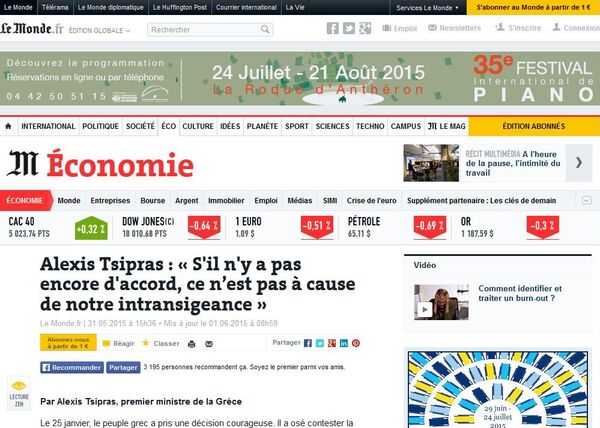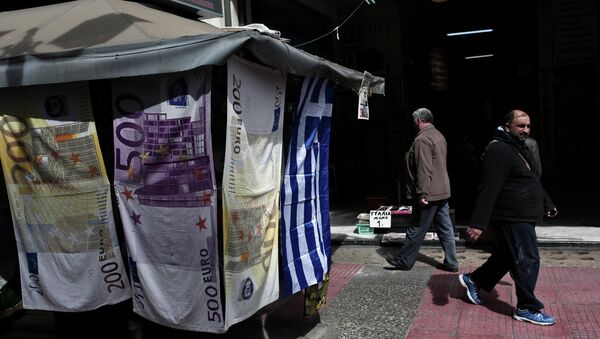Athens and its Eurozone and International Monetary Fund (IMF) creditors are still locked in talks on a reform agreement which will unlock the flow of aid to the country.
Pressure has intensified as the country faces a debt payment on June 5 as well as the expiration of its bailout program on June 30.

Meanwhile, Prime Minister Alexis Tsipras submitted an article to the French daily Le Monde, where he explained the position of his country and lashed out at its European partners, saying that it is not Greece which should be blamed for not yet reaching a deal with its creditors.
“The lack of an agreement so far is not due to the supposed intransigent, uncompromising and incomprehensible Greek stance,” the prime minister wrote.
"It is due to the insistence of certain institutional actors on submitting absurd proposals and displaying a total indifference to the recent democratic choice of the Greek people, despite the public admission of the three Institutions that necessary flexibility will be provided in order to respect the popular verdict."
“I simply cannot believe that the future of Europe depends on the stubbornness or the insistence of some individuals,” he stated.
The prime minster explained the issue of Greece does not only concern Greece; rather, it is the very epicenter of a conflict between two diametrically opposing strategies concerning the future of European unification.
My article in @lemondefr "Europe at crossroads" http://t.co/s7IKkKfb0B pic.twitter.com/T74nDMOm2s
— Alexis Tsipras (@tsipras_eu) 31 мая 2015
“Which strategy will prevail? The one that calls for a Europe of solidarity, equality and democracy, or the one that calls for rupture and division?” he questioned.
“Europe, therefore, is at a crossroads. Following the serious concessions made by the Greek government, the decision is now not in the hands of the institutions, which in any case – with the exception of the European Commission- are not elected and are not accountable to the people, but rather in the hands of Europe’s leaders.”
Elaborating on the two different strategies, the politician explained what happens to those countries that refuse to bow to institutional authority and what would occur following the division of the Eurozone, and consequently of the EU.
“The solution will be simple: Harsh punishment. Mandatory austerity. And even worse, more restrictions on the movement of capital, disciplinary sanctions, fines and even a parallel currency.”
“Judging from the present circumstances, it appears that this new European power is being constructed, with Greece being the first victim. To some, this represents a golden opportunity to make an example out of Greece for other countries that might be thinking of not following this new line of discipline,” he added.
On Monday, Germany's EU Commissioner Guenter Oettinger has said it might still be possible for Greece and its creditors to reach a deal this week.



